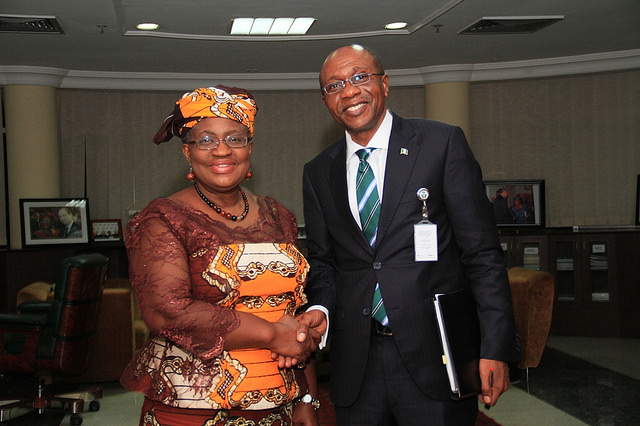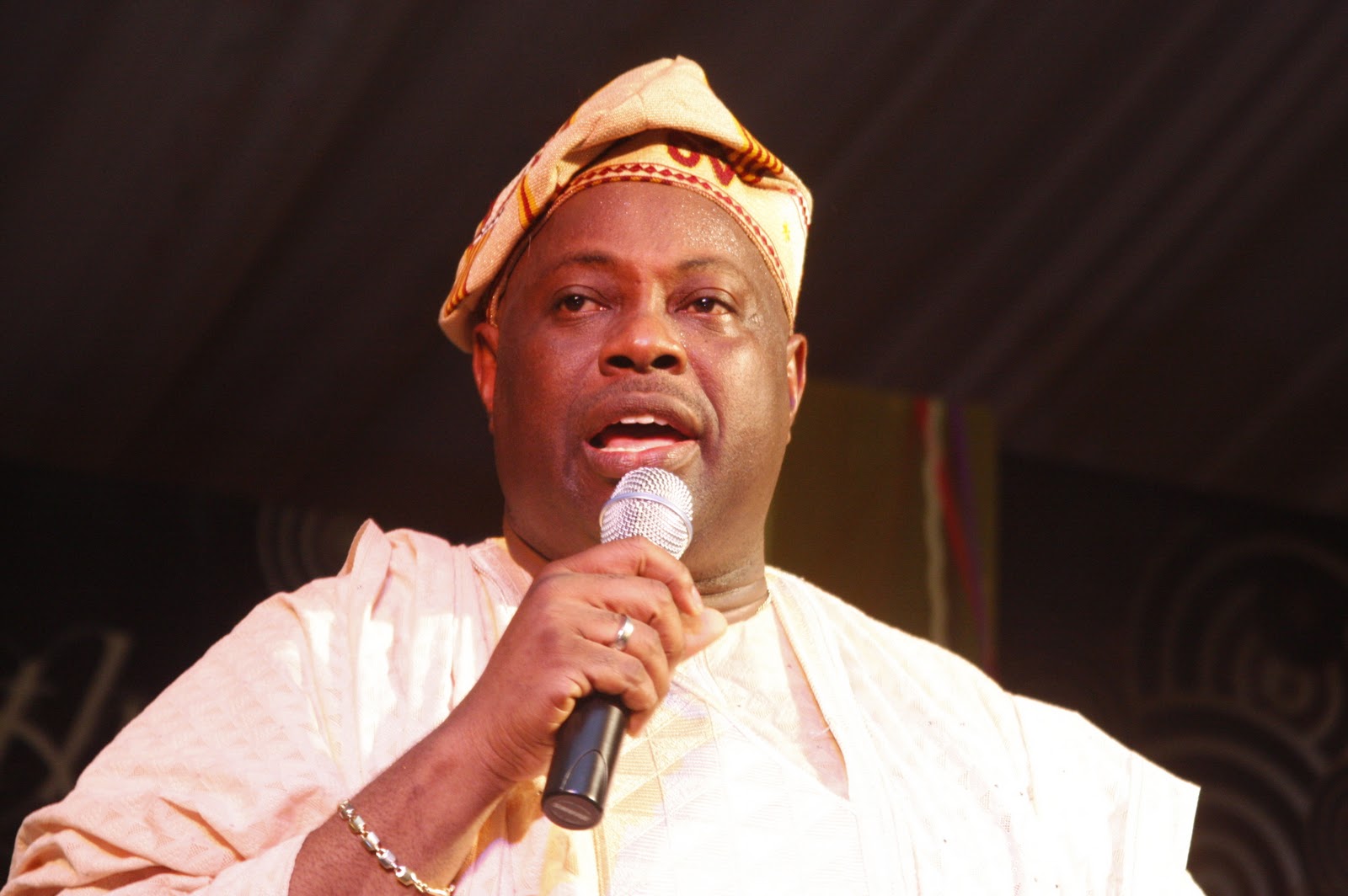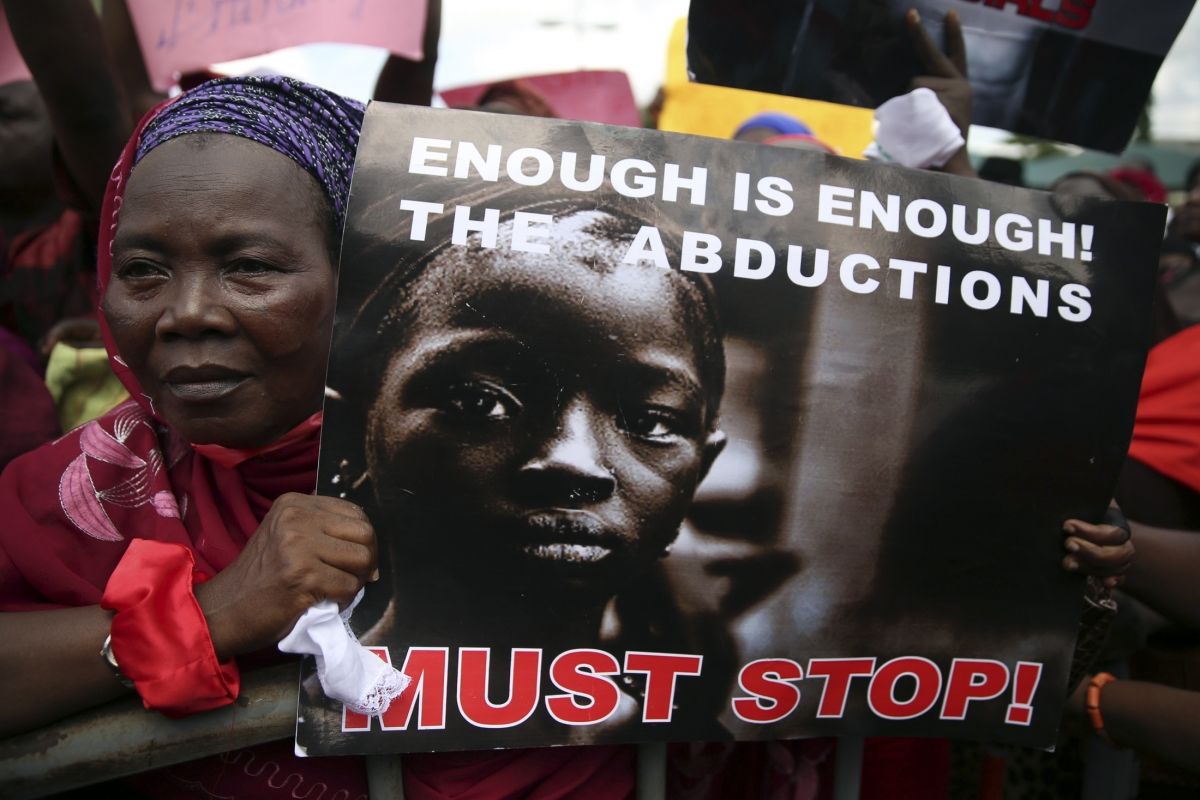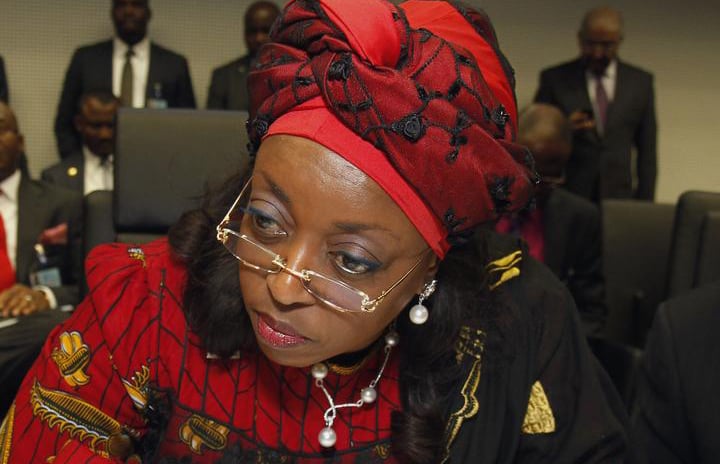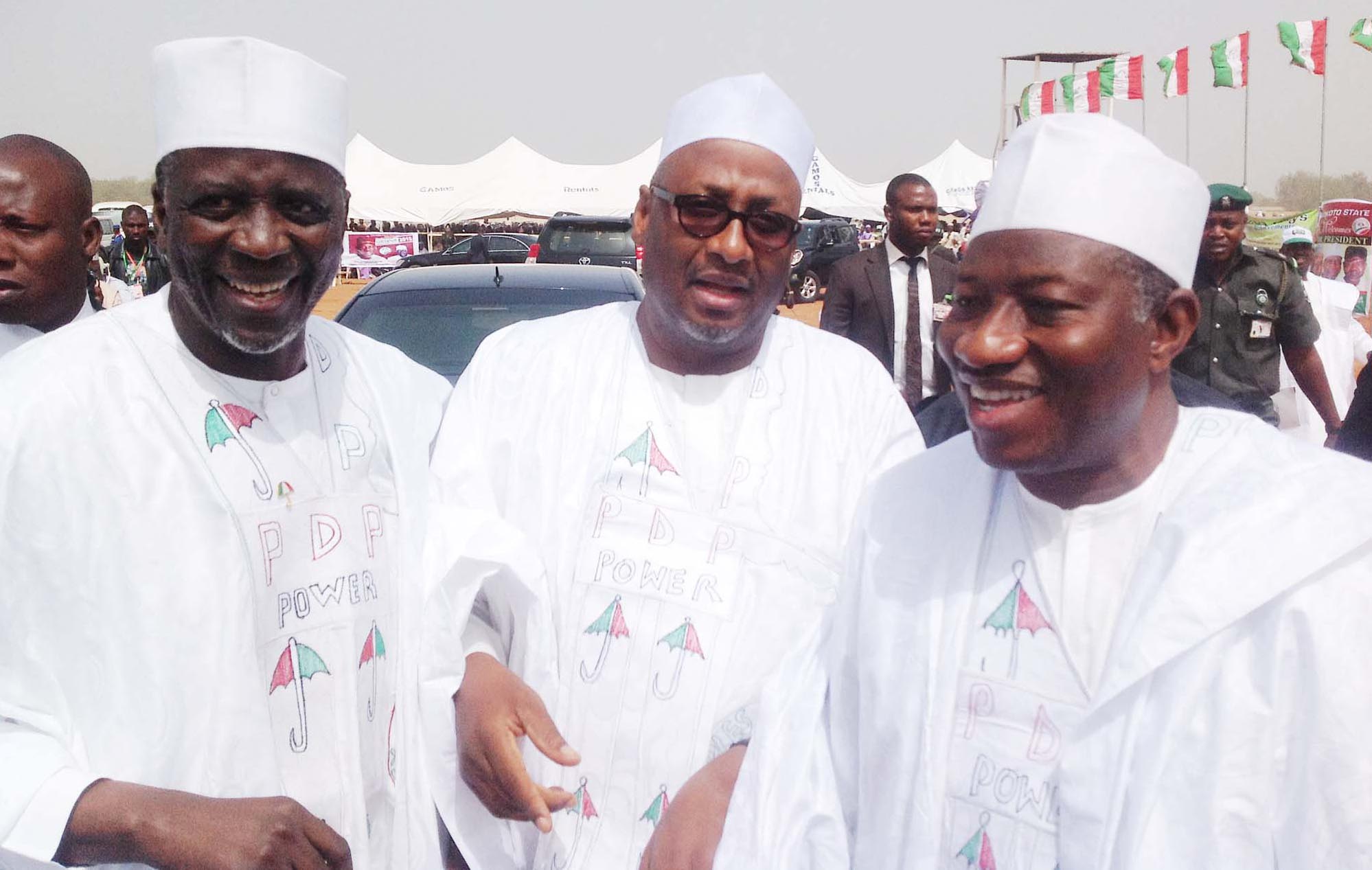By the time Godwin Ifeanyi Emefiele’s plan, as unveiled Thursday June 5, for the Central Bank of Nigeria (CBN) starts to yield results, this economy would begin to work again.
There will be room for everyone who wants to work or do business. There will be space for big business and also for small business. His brand of central banking, anchored on development finance, places the people’s welfare at the centre of all policy considerations.
So, whether it’s about raising interest rate or altering the value of the currency, the determinant will be the likely impact of such a policy on the people and not a preoccupation with some arcane economic consideration such as price stability.
As the new CBN governor put it, “In fact, price stability can rarely be adjudged a goal in itself except cast against the ultimate objective of improvement in the quality of life.”
Advertisement
Yet, he said price stability would remain a cardinal contribution, indeed a cornerstone, to the ultimate goal of economic development.
“I believe that reasonably stable prices provide a catalyst for rational consumption and investment decisions and for orderly economic progress,” he said.
According to him, that is why throughout most of economic history, “periods of price and financial system stability have coincided with economic growth and development.”
Advertisement
Welfare indicator
For the first time, a true measure of welfare indicator will be included in the metrics for monetary policy decisions. Henceforth, he said, unemployment rate will feature in the decisions of the Monetary Policy Committee, the organ of the bank that is charged with the responsibility of determining monetary policies to achieve price stability.
In a country whose unemployment rate is well over 20%, members of that committee, which is chaired by the governor himself, must really reflect well whether it is appropriate or not at any given time to contract or expand the economy by the decisions they take.
Under his leadership, the central bank could become a real catalyst of economic development in such a way that big corporations will have access to long-term capital at lower rates, while an artisan or trader who needs just N50,000 to start business but has no collateral to support his application to a bank, will have access to that amount and begin to build his or her life.
Advertisement
Coming to the CBN top seat at a time such as this, after the recent turbulence in the Nigerian financial market and the disquiet caused by leadership dislocation at the regulator, Emefiele knew he had to come up with some creative alternatives to what has prevailed up until now. He had to bring with him a new toolkit to reengineer the bank and give a direction to the economy
His plan shows he is well aware of this.
Lending and deposit rates
His approach is to accept what is good and workable and reject all that has been accepted but clearly wrong. One of such things to change is the high interest regime that has prevailed in Nigeria for long. His plan is to gradually reduce both lending and deposit rates.
Advertisement
According to him, Nigeria’s treasury bills have been the highest among most of the frontier and emerging markets, and “this has been a disincentive on financial intermediation in the country because rather than lend money to for investment purposes, banks choose rather to put their funds in the safety of government instruments”.
Let’s look at this a little, if only to see the wrong that this has done to the economy.
Advertisement
What it the t-bill rate? It’s the riskless rate, the rate at which government borrows short term, from 90 days to about 364 days to fund its deficits. It is has no default risk and so it does not contain any risk premium. The longer-tenured instruments or bonds also carry attractive rates and also have no risk of default because they are issued by government.
And, of course, the only person or institution that qualifies for this is the government, which is assumed to be there always. Even when there is a change in leadership, the government continues. It is the kind of lending that someone- including a bank- makes and goes to sleep, knowing that they will receive their principal and of course the interest on the investment, which comes via the difference between the face value and the amount that the investor actually pays.
Advertisement
“Such high rates create a perverse incentive for commercial banks to simply buy virtually risk-free government bonds rather than lend to the real sector,” the governor noted.
Private sector
Advertisement
Now, if riskless lending rate is so high, what would one expect in respect of loans to the private sector, whether the individual or corporate body, which by definition is risky in the sense that the borrower could default? This explains why lending to the private sector has continued to be high but such rates contain compensation for risk in addition to the t-bill rates.
Effecting the interest rate reduction proposal will obviously involve other stakeholders, since it cannot be done by fiat. This probably is part of the reasons he said: “We hope to engage the fiscal and political authorities, as well as other stakeholders to improve our policy buffers, which will further create space for the Bank to implement monetary policy using its limited instruments.”
One of such stakeholders will be the Debt Management Office, which is responsible for the issuance of government’s treasury bills. Since the pricing of these securities is leading to misallocation of financial resources in the economy, then there is an obvious need for a review of the system.
But the plan to reduce interest rates needs further examination, from a long-term perspective. At the heart of this objective is the issue of savings and investment in our environment. Ultimately, the major determinant of interest rate is the supply of funds, which themselves stem from people’s ability to put aside part of their current income from today’s consumption. That is savings.
Richard Longworth in his 1998 book, Global Squeeze, paints an interesting picture of how Japan is able to play a dominant role on the global financial market because of its extremely high savings rate. Savings create funds which become accessible to investors through financial intermediation. Japanese savers invest in bonds sold by other developed countries, including the United States.
Low costs
It is also this factor that accounts for the fact that Japanese local industries are able to access funds at ridiculously low costs. Japanese firms are able to access the large pool of funds which the state, through the powerful Ministry of Finance, makes available to them at preferential rates. In our own case, the CBN has to play this role and what Emefiele unfolded on June 5 fits into this mould.
So, the plan on low interest rates must be hinged on a number of factors, one of which should be how to raise savings rate that in turn will unleash liquidity in the market.
Lowering interest rates in a period when there is concern over the value of the Naira is also an ambitious target, especially since the governor has consistently said he is opposed to the devaluation of the naira. But it also shows Emefiele’s decision to confront theory.
Part of the reason for the consistent increase in interest rate to 12 percent where the Monetary Policy Rate has been since October 2011 was the need to maintain the value of the naira. It was feared that a lowering of interest rates would make naira cheap and lead to high demand for foreign currency. So both objectives that he wants to achieve – just as in the case of maintaining price stability and also hoping to keep the people’s wellbeing- are opposed to each other.
Emefiele acknowledges this, and proffers a way to go about it. “There is no doubt that reducing the interest rate and maintaining the exchange rate are very daunting twin goals. However, the CBN would work assiduously with all stakeholders to device countervailing measures that would ensure that these goals are mutually achieved,” he said.
On the question of the exchange rate and the level of foreign reserves, his answer is based on the concept of supply-side economics: for every demand there is a supply and if you beef up the supply, you would have taken care of the pressure or disequilibrium. His plan for the real sector generally is to increase productivity.
Import bill
For the four commodities he listed – fish, rice, wheat and sugar, which “constitute a huge proportion of our food import bill of N1.3 trillion annually” ─ increased local production will lead to a conservation of foreign exchange, and ultimately a build-up in foreign reserves. Our foreign reserves cannot rise on their own unless we earn more from exports and concomitantly reduce our import bills.
The same will apply to the oil sector, where Nigeria’s unfortunate dependence of imported refined petroleum products has become part of the drain on the nation’s foreign reserves. If, as Emefiele said, local refining capacity is raised, importation of petrol will fall and with this more dollars will be kept as part of reserves.
But he also knows that whether he and his team are able to achieve anything borders on their commitment and focus. He put the point quite clearly at the start of his speech that he has come to build a central bank that is professional, a central bank that is “apolitical, and people-focused”.
He wants to leave behind him a central bank that “spends its energies on building a resilient financial system that can serve the growth and development needs of our beloved country, Nigeria.”
These are key to whatever he hopes to achieve. Political neutrality is important so the bank does not sway with changes in the political leadership.
As he summed up, perhaps this is the time Nigerian will move from living in a country with great potentials, to actually living that dream.
